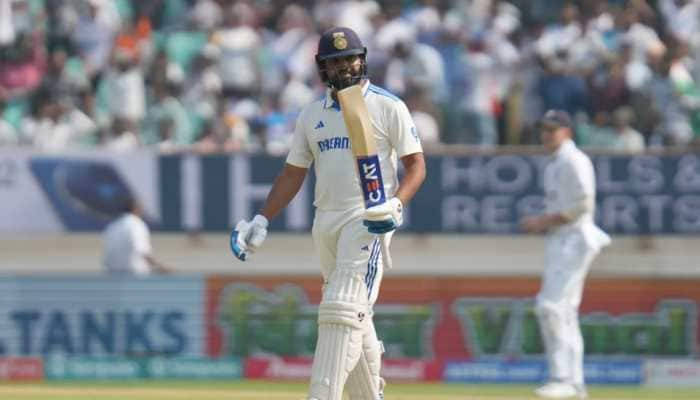Fog of war over Article 370 has created too many myths
The repeal of Article 370, which gives autonomy to Jammu and Kashmir, has long been a controversial topic in Indian politics.
Trending Photos
)
Let me start with demystifying certain provisions of the Constitution, the Instrument of Accession and also corresponding provisions of the so called Azad Kashmir (POK).
Article 370
The title to the Article itself is Temporary Provisions with respect to State of Jammu and Kashmir. No I recall the text of the Article 370 for the benefit of the readers
Text of Article 370
1) Notwithstanding anything in this Constitution
(a) the provisions of Article 238 shall not apply in relation to the State of Jammu & Kashmir;
(b) the power of Parliament to make laws for the said state shall be limited to
(i) those matters in the Union List and the Concurrent List which, in consultation with the Government of the State, are declared by the President to correspond to matters specified in the Instrument of Accession governing the accession of the State to the Dominion of India as the matters with respect to which the Dominion Legislature may make laws for the State; and
(ii) such other matters, in the said Lists, as, with the concurrence of the Government of the State, the President may by order specify:
Explanation- For the purpose of this article, Government of the State means the person for the time being recognised by the President as the Maharaja of Jammu and Kashmir acting on the advice of the Council of Ministers for the time being in office under the Maharaja's proclamation dated the fifth day of March, 1948
(c) the provisions of Article 1 and of this article shall apply in relation to that state
(d) such of the other provisios of this Constitutions shall apply in relation to the State, subject to such exceptions and modifications as the President may by order specify
Provided that no such order which relates to that matters specified in Instrument of Accession of the State shall be referred to in paragraph (i) above of subclause (b) shall be issued except in consultation with the Government of the State
2) If the concurrence of the Government of State referred to in paragraph (ii) of sub clause (b) of clause (i) or in second proviso to sub clause (d) of that clause be given before the Constituent Assembly for the purpose of framing the Constitution of the State is convened, it shall be placed before such Assembly for such decision as it may take thereon
3) Notwithstanding anything in the foregoing provision of this article, President may by public notification, declare that this article shall cease to be operative or shall be operative only with such exceptions and modifications and from such date as be may specify
Provided that the recommendations of the Constituent Assembly of the State referred to in clause 2 shall be necessary before the President issues such a notification.-
Corresponding provision of POK
Article 7.2 of the 'Azad Kashmir' Constitution, for example, outlaws any activity opposing the "ideology of accession to Pakistan". India's question is, does Pakistan then have any justification to talk about self-determination.
Readers will at the first instance be able to appreciate the difference in the Constitutional provisions of the two countries, which inter alia reinforces the Indian position that POK is an Indian territory illegally occupied by the and outlaws any activity that tantamount to opposing the ideology of accession to Pakistan. Hence, few questions do get opened up. While the Indian provision per se is an inclusive provision whereas the provision in respect of Azad Kashmir is more a draconian position. This is the first poser to our friends who are batting for talks with Pakistan whether, in such a Constitutional framework, is there any point in talks with Pakistan. It has to be seen in the context that when Pakistani citizens are outlawed from questioning Kashmir's ideological accession to Pakistan, the position of Pakistan and the outcome of the talks with them are too predictable.
Question for the separatists
Now in this context a question to separatists of Kashmir seeking to cede from the country and to align with Pakistan, that begs an answer is that, is the writing not clear on the wall ? While being in India in letter of the Constitutional provisions as well as in reality they can get away with shouting 'azadi' slogans, expect to tried under the law of the land with attendant Human Rights protection. Do you still want to go on unify your Kashmir with Pakistan? Then why do you mislead your people whom you claim yourself to be leading? Indeed, you have been repeatedly recruiting people, promising them the Kashmir will be a land of milk and honey, motivating them for stone pelting, attacking the security forces, and host of other militant activities. Now when they do get neutralised, you make heroes out of them.
Question for the doves
Now for the doves who quote Article 370 repeatedly. Let us the read the provisions of the Article 370. My training in a law school three decades back taught me that the golden rule of interpretation is the literal interpretation. As I have brought out in the title itself it is very clear that it is a temporary provision. My request to these friends is again to also read the actual text of the Instrument of Accession and appendix thereof. By reading these two instruments, it will be clear that the signatory Maharaja of Jammu and Kashmir had ceded most of subjects as contained in appendix to the Instrument. What is left is only residuary and also it distinguishes from provision of Article 238 as applicable to other states of Indian Union. There is a reference to the issue of land in this context, there after it is for land for creation of Central Government assets.
Indeed Article 35 A has additionally added the State's prerogative to determine its citizens and confer attendant privileges and right proscribed for other citizens, inter alia including rights to contest elections for J&K Assembly, acquire land etc.
Can we abrogate Article 370, and if so, how?
One more interesting point I want to make here. Dr Subramanian Swamy had recently observed that there is no need to amend the Constitution for abrogation of Article 370 and a Presidential Order is enough. I do agree with him. Going literally by the written provisions of Article 370 Clause (3), it is perfectly adequate that a Presidential Order can abrogate or supersede Article 370. In order to satisfy the proviso thereunder, after a Presidential proclamation is made and thereafter, a ratification by the Jammu and Kashmir Assembly will satisfy the requirements. Hence the argument of Constitutional amendment is a myth.
Question for the Government of India
But no Government has initiated action to get a Presidential proclamation. There are many legal and Constitutional experts in the country, and I am quite intrigued that no one has recommended this course of action.
Strength of J&K Assembly
One more important information for the readers. The actual strength of Jammu and Kashmir Assembly is 111. Of these, 24 seats are kept in abeyance till the cessation of occupation of POK by Pakistan, which further reinforces that Jammu and Kashmir is an integral part of India.
(RVS Mani is a former Central government officer who shot to prominence as a whistleblower in 2009, when he alleged he had been forced to sign documents that fabricated a narrative of 'Saffron Terror'. His book, 'Hindu Terror: Insider account of Ministry of Home Affairs', was released recently.)
(Disclaimer: The opinions expressed above are the personal views of the author and do not reflect the views of ZMCL.)
Stay informed on all the latest news, real-time breaking news updates, and follow all the important headlines in india news and world News on Zee News.
Live Tv







)
)
)
)
)
)
)
)
)
)
